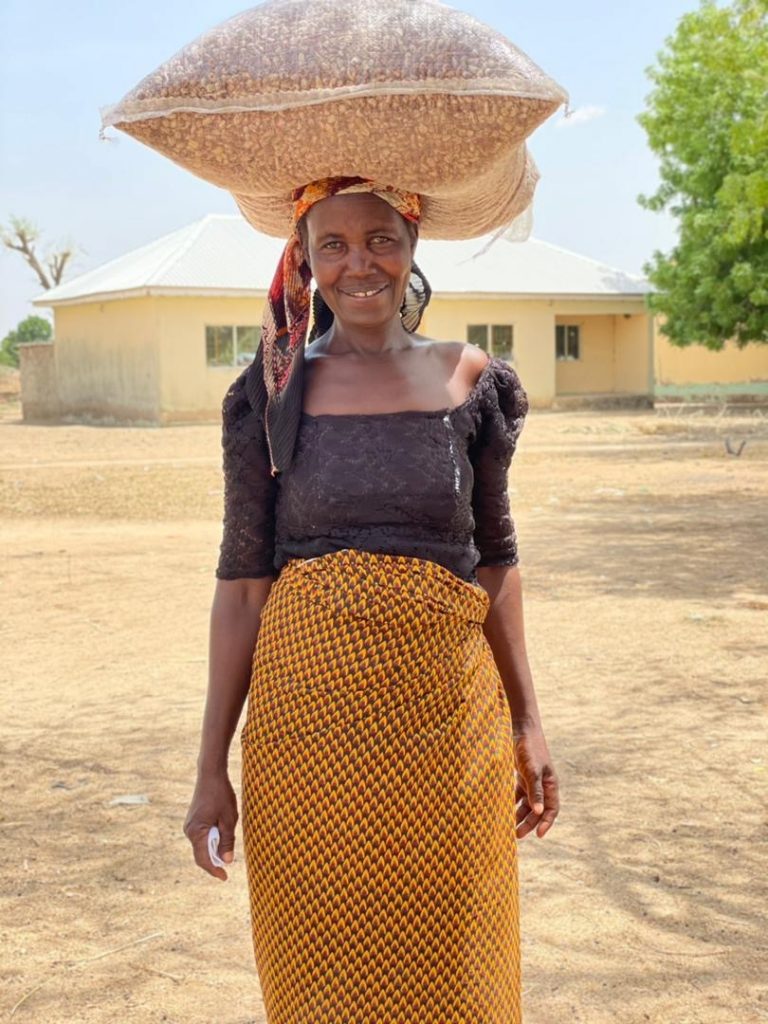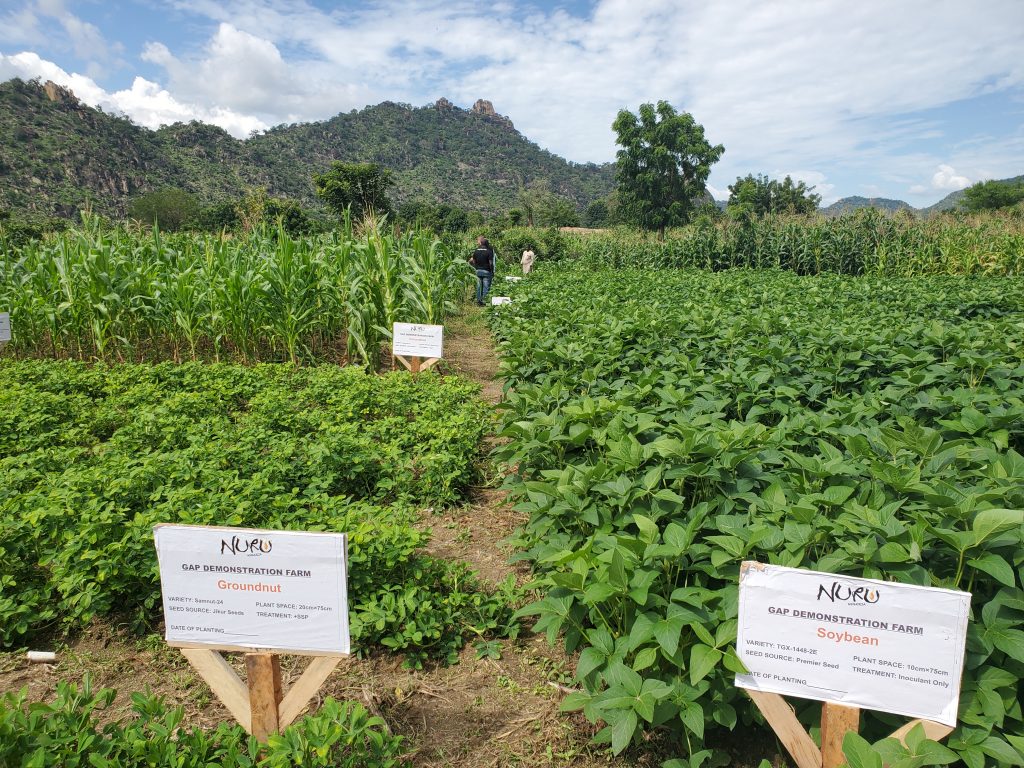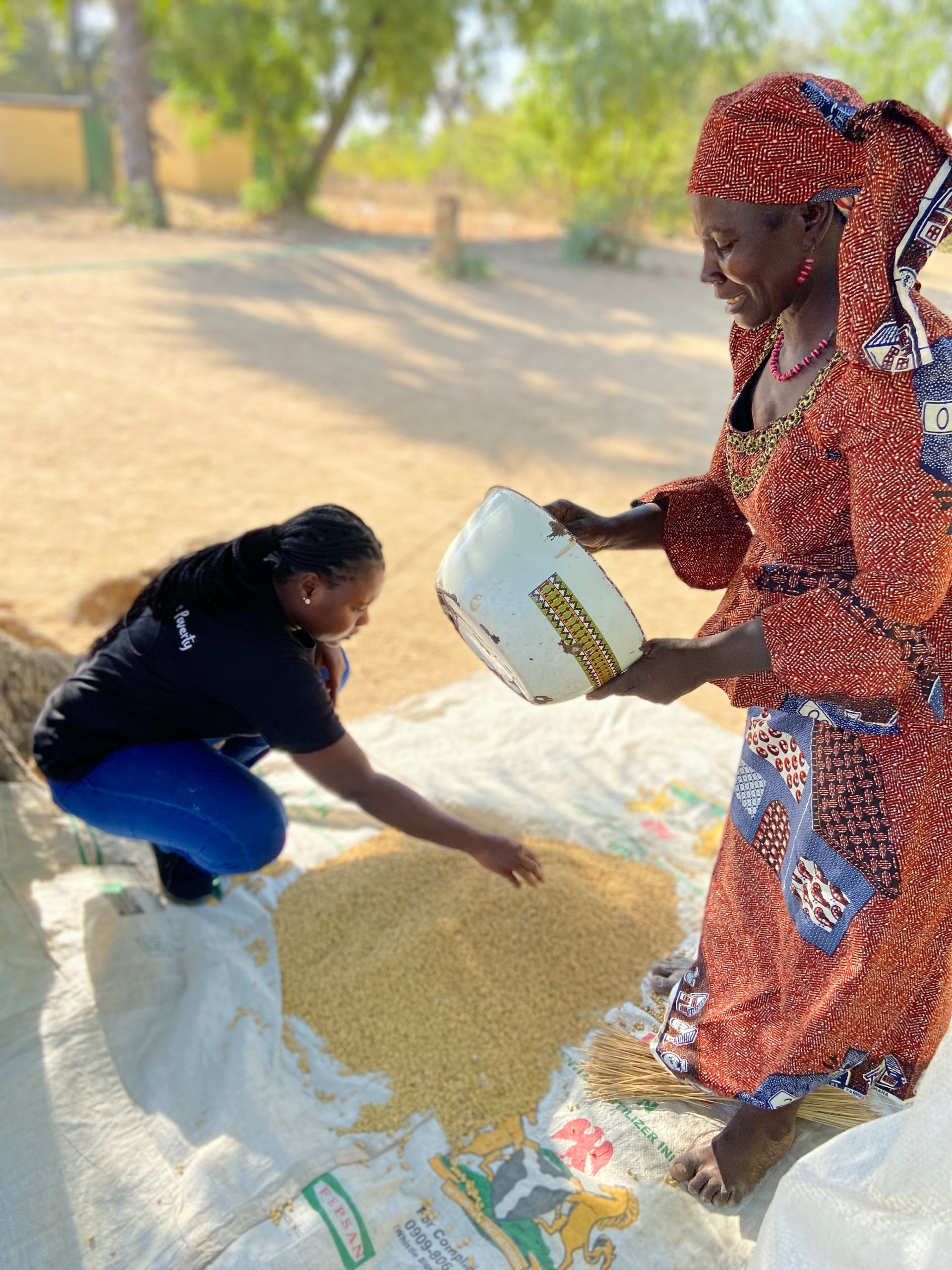It is the heart of the rainy season in northeast Nigeria, and farmers’ fields are lush with groundnut and soybean plants. Just as these plants mature toward harvest, Nuru Nigeria continues to grow and strengthen as an organization, full of hope and promise.
Expanded Footprint
One area of organizational growth has been in expanding the footprint of services to new communities. In late 2020 and early 2021, Nuru Nigeria began the process of identifying and registering farmer associations (FAs) in two new wards in northern Adamawa State, effectively tripling the number of farmer households supported by Nuru Nigeria. In July, two local government areas (LGAs) and an additional ward were added as Nuru began the USAID-funded Building Sustainable Livelihoods activity.

Key to our growth into these new communities is the inclusion of women. Nuru Nigeria’s commitment to gender mainstreaming centers women as the entry point to households. For any household to qualify for registration in a Nuru Nigeria FA, for example, there must be a registered woman from the household before a man from the same household can be registered. 73 percent of registered FA members are women, representation that is strengthening family welfare and empowering women’s voices in household and community decision-making.
New Activities
Beyond the expansion to new communities, Nuru Nigeria’s growth extends to new interventions that are locally-driven and responsive to community needs. In one region, our community mapping and registration process revealed that it is uncommon for women to engage in crop-based farming activities. To engage this community, Nuru Nigeria piloted a ram fattening activity in which women from registered FAs bought rams from Nuru on loan and raised them to sell at the Sallah (Eid al-Adha) holiday market, a key festival and market period in the region. Since the sale of the rams in July, 100 percent of the loans have been repaid.
Strengthening Farming Communities
Even as we grew our reach with new communities and new activities, Nuru Nigeria continued to deepen our roots in existing households and farmer associations. In May 2021, Nuru Nigeria distributed loan packages for groundnuts and soybeans for the second season and piloted a small component for maize production as well, impacting 1,134 households. These packages included improved seed varieties, fertilizer, and seed dressing provided in the form of a loan at the time of planting. After harvest and sales of their crops, FA members repay the cost of those inputs to Nuru Nigeria through their FA groups. Crop package distribution is accompanied by training on the latest technologies and improved agricultural practices, using participatory training techniques such as on-farm demonstrations and practical, hands-on training sessions. With the combination of better inputs and practices, farmers improve their yields, resulting in more income for their household.
Impact
COVID-19, continuing conflict and insecurity, and weather variability have created considerable hardship in the region. For Nuru Nigeria farmers, the increase in farming activities and flow of cash from crop sales is changing their lives and restoring hope. In the 2020 season, Nuru farmers saw a 65 percent average increase in crop equivalent yield for soy and groundnut and a 107 percent increase in incomes.
Mary, a wife, mother of eight, and member of a Nuru Nigeria FA is one of these successful farmers. In 2014, her life changed for the worse when she watched her house and crops set ablaze. Her family fled to safety, and did not return to the region until 2016. When they resumed farming, they grew only enough for the family to eat. Mary’s story changed when she became a member of the Nuru-supported Nasara FA in 2020. Through Nuru Nigeria extension services, Mary learned to use fertilizer correctly and efficiently on her farmland and plough her land into ridges before planting her groundnuts – important practices in ensuring a good harvest. She encourages other farmers to use all the necessary training and services that Nuru Nigeria provides to increase their own yields. Mary is hopeful that with her group savings, she will soon have enough funds to venture into animal rearing and other sources of income.
Looking Ahead

Planting is an act of hope. When farmers put seeds in the ground, they are planning for a desired future. Similarly, Nuru Nigeria has invested in its FAs in anticipation of the next critical step of the organization’s growth – launching cooperative farmer organizations (FO). This fall, multiple FAs will join together to create the larger agribusiness entity that will give members greater collective power. Farmers in FOs will be able to reach larger markets and receive higher prices for their crops, as well as to access high-quality, affordable inputs and other needed agricultural services. Nuru Nigeria will continue to support farmer households, equipping them to build member-owned cooperatives as functioning business entities.


